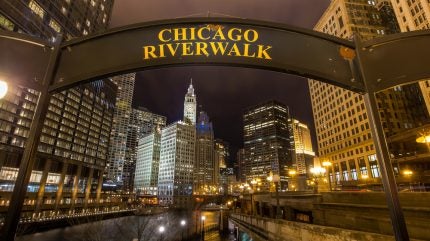
Chicago now applies the state Hotel Operators’ Occupation Tax (HOOT) to short‑term rentals like Airbnb and VRBO, effective 1 July 2025. Hosts must pay a 6% tax on 94% of gross rental receipts, adding to existing state and municipal lodging taxes.
Meanwhile, the city’s tourism board, Choose Chicago, is backing a proposed Tourism Improvement District that would push the hotel tax for large downtown hotels to 18.9%, raising Chicago’s already-high lodging tax to top national levels.

Discover B2B Marketing That Performs
Combine business intelligence and editorial excellence to reach engaged professionals across 36 leading media platforms.
Why short‑term rentals now face state lodging tax
From July 1, 2025, Illinois law extends the 6% Hotel Operators’ Occupation Tax to short‑term rentals, calculated on 94% of their gross income.
Previously reserved for hotels, this tax now covers all short‑term rentals under 30 days. Hosts—not platforms—are responsible for remittance, but may pass the tax to guests.
The tax complements existing assessments, such as the Chicago city tax of 4.5% plus a 6% surcharge, Metropolitan Pier & Exposition Authority tax, and Illinois Sports Facilities Authority levy, all applied to STRs.
Tourism improvement district would raise hotel tax to 18.9%
Choose Chicago has announced plans for a Tourism Improvement District (TID) targeting hotels of at least 100 rooms within defined downtown zip codes.

US Tariffs are shifting - will you react or anticipate?
Don’t let policy changes catch you off guard. Stay proactive with real-time data and expert analysis.
By GlobalDataThe proposal would introduce an extra 1.5 percentage points on top of the current 17.4% hotel tax, lifting it to 18.9%.
Funds would support destination marketing, global media campaigns, convention bidding incentives and event promotion—aimed at reinforcing Chicago’s competitive edge.
How Chicago compares with other convention cities
At 17.4% today, Chicago already holds one of the highest hotel tax rates among US convention-focused cities.
With the additional TID charge, the rate would reach 18.9%, potentially the highest nationally.
Supporters argue the extra revenue—estimated at over $50 million annually—could boost marketing budgets to levels closer to those of Las Vegas and New York, where tourism boards enjoy significantly larger funding.
However, some hoteliers and meeting planners caution that the higher cost could deter business, though the tourism board believes incentives would offset any negative impact.
Looking ahead
Chicago has tightened rules on short‑term rentals by extending state lodging taxes and is moving to further elevate hotel tax rates downtown. For Airbnb and VRBO hosts, the HOOT extension means higher operating costs that may be passed to guests, bringing the total tax rate for short-term rentals to 23.4%.
For hotel operators and visitors alike, the proposed Tourism Improvement District could raise room rates but aims to bolster marketing and convention attraction.
As public hearings and council votes loom, the city weighs revenue gains against affordability and competitiveness in the hospitality market.





